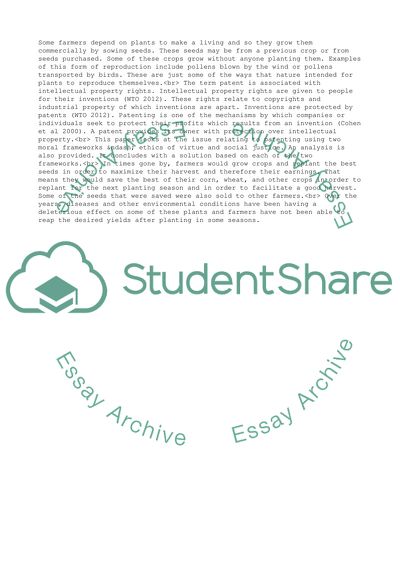Cite this document
(Organism Patenting Issue Assignment Example | Topics and Well Written Essays - 1500 words, n.d.)
Organism Patenting Issue Assignment Example | Topics and Well Written Essays - 1500 words. Retrieved from https://studentshare.org/business/1784867-organism-patenting-the-assignment-should-be-based-on-the-attached-document
Organism Patenting Issue Assignment Example | Topics and Well Written Essays - 1500 words. Retrieved from https://studentshare.org/business/1784867-organism-patenting-the-assignment-should-be-based-on-the-attached-document
(Organism Patenting Issue Assignment Example | Topics and Well Written Essays - 1500 Words)
Organism Patenting Issue Assignment Example | Topics and Well Written Essays - 1500 Words. https://studentshare.org/business/1784867-organism-patenting-the-assignment-should-be-based-on-the-attached-document.
Organism Patenting Issue Assignment Example | Topics and Well Written Essays - 1500 Words. https://studentshare.org/business/1784867-organism-patenting-the-assignment-should-be-based-on-the-attached-document.
“Organism Patenting Issue Assignment Example | Topics and Well Written Essays - 1500 Words”, n.d. https://studentshare.org/business/1784867-organism-patenting-the-assignment-should-be-based-on-the-attached-document.


